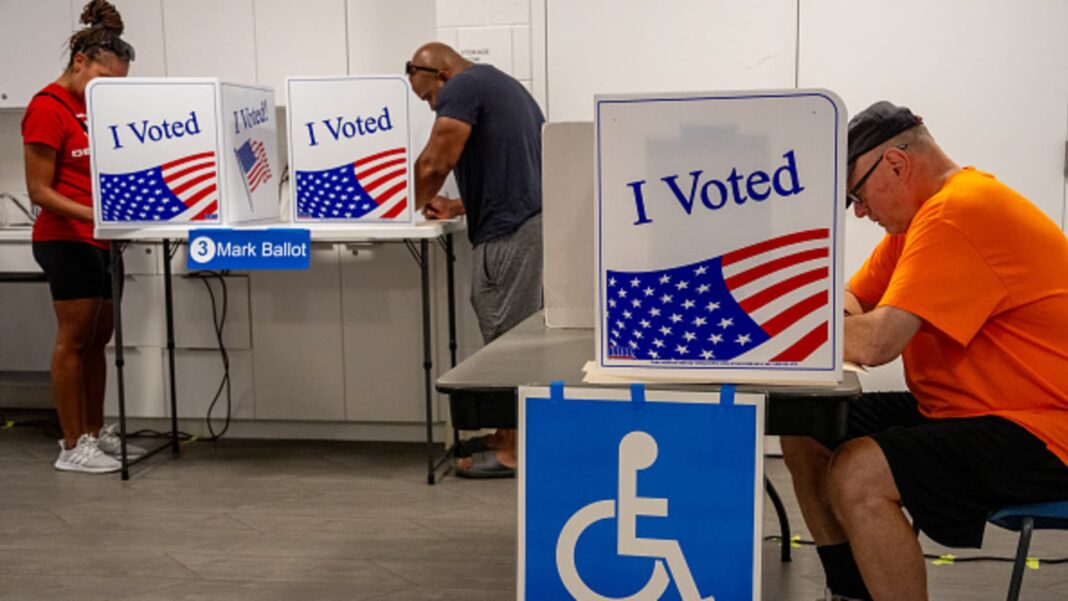[
]
People vote on the first day of Virginia’s in-person early voting at Long Bridge Park Aquatics and Fitness Center on September 20, 2024 in Arlington, Virginia.
Andrew Harnik | Getty Images
A federal appeals court has fast-tracked the Commodity Future Trading Commission’s case challenging the right of the event exchange Kalshi to offer U.S. political election contracts.
The expedited appeal comes as Kalshi and another platform, Interactive Brokers, are offering an array of political contracts, including bets on the outcomes of the U.S. presidential election, U.S. Senate races, and party control of each chamber of Congress.
Kalshi touted its presidential election contracts on electronic signs in New York City’s Times Square over the weekend.
The quick appellate schedule calls for the CFTC to file its legal brief by Wednesday and for Kalshi to respond with its brief by Nov. 15 — 10 days after Election Day. The CFTC will then have until Dec. 6 to file a reply to Kalshi’s brief.
The U.S. Court of Appeals for the District of Columbia Circuit directed the court’s clerk to schedule oral arguments on the “first appropriate date” after that reply is filed.
It normally takes months in federal appeals courts for briefing and oral arguments to occur.
The CFTC had requested oral arguments on Dec. 2.
A commission spokesperson declined to comment on the schedule.
In an Oct. 2 court filing, the CFTC argued that a quick resolution of the appeal is in the public’s interest.
The CFTC told the appellate court that election contracts “are susceptible to market manipulation” and also pose a risk to election integrity or how the public views the integrity of elections.
Kalshi CEO Tarek Mansour, in a statement, said his company is “confident” that the law allows election contracts.
Kalshi is “looking forward to continuing to show how powerful these markets are at promoting election integrity and bringing more truth to the system!” Mansour said.
The CFTC in September lost a lawsuit in U.S. District Court in Washington, D.C., seeking to block Kalshi from offering contracts on which political parties would win control of both chambers of Congress in November.
The commission quickly appealed that ruling to the D.C. Circuit Court of Appeals, which promptly issued an injunction temporarily barring Kalshi from accepting congressional control contracts.
But the appeals court lifted that legal freeze on Oct. 2, saying the CFTC had failed to show that the commission or the public would be “irreparably injured” without that injunction remaining in effect during the appeal.
Kalshi resumed offering its congressional contracts, and then contracts on the outcome of the presidential election between former President Donald Trump and Vice President Kamala Harris, and other races.
As of Monday, Kalshi had booked more than $7 million in contracts on the presidential election outcome.
On Oct. 3, Interactive Brokers began offering political contracts to customers. The platform says more than 1 million such contracts had been traded.
“We’ve seen substantial demand for election-focused contracts on our platform in just a short time,” said Thomas Peterffy, founder of Interactive Brokers, in a statement. “This interest underscores the growing relevance of political prediction markets.”


